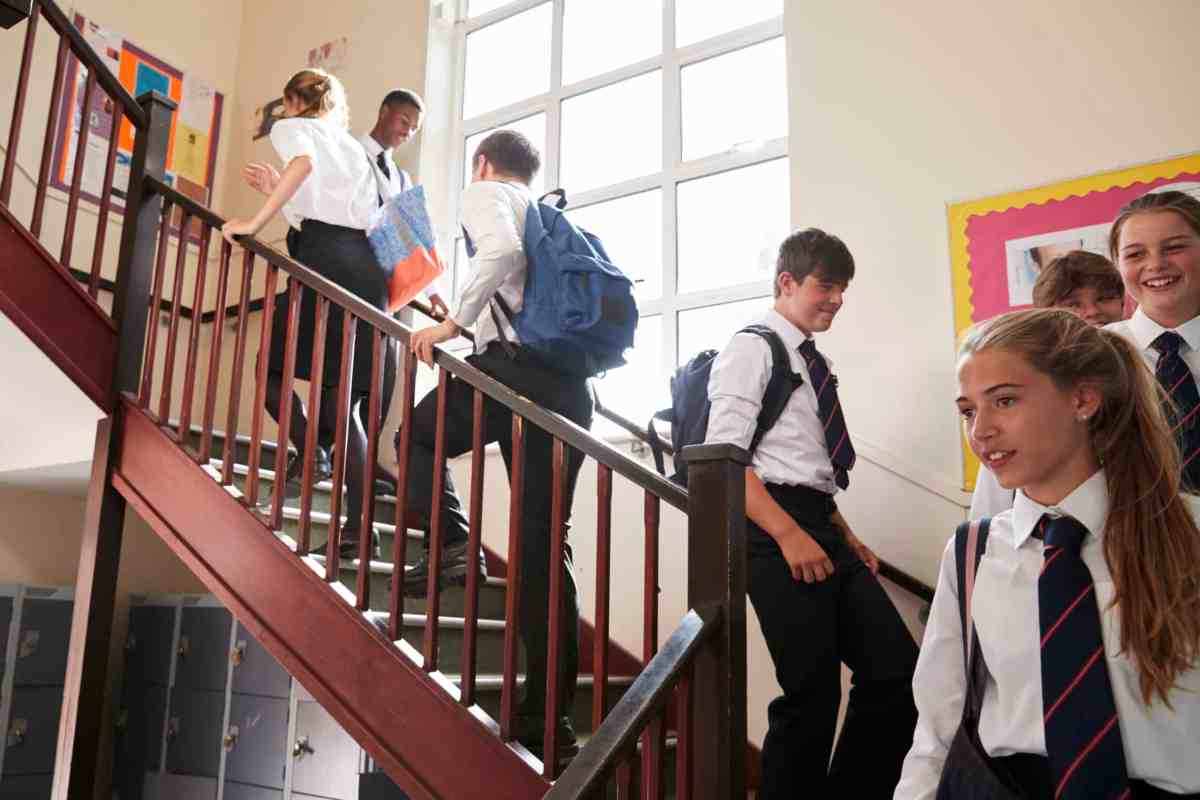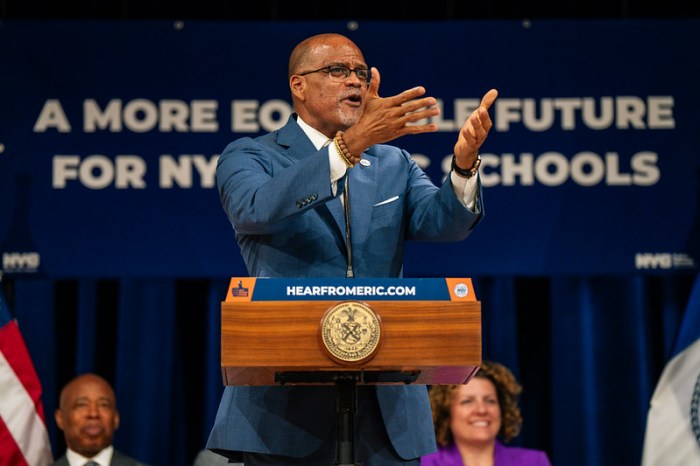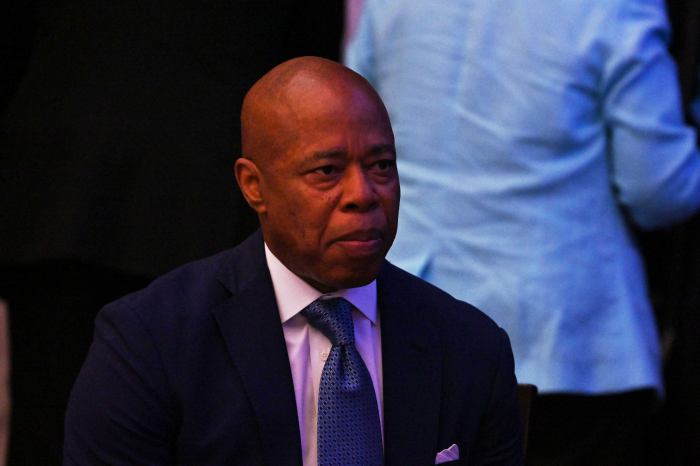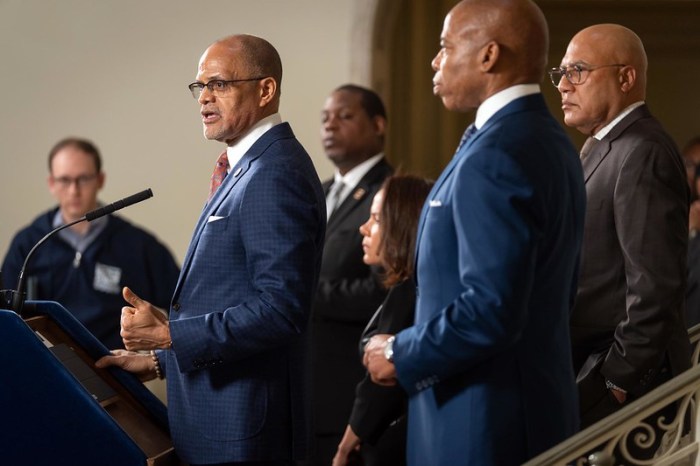The United Federation of Teachers (UFT) announced a survey on Monday that shows NYC educators would likely support a school cellphone ban, building even more momentum for a statewide policy that has been talked about for months.
The survey found that two-thirds of NYC educators would support a cellphone ban in public schools. The snapshot survey of teachers and other union members from more than 1,000 schools in the city found that 63% supported a citywide ban, while 31% opposed it. Another 6% remained neutral.
“Teachers know first-hand that cellphones waste classroom time and threaten students’ mental and physical health,” said UFT President Michael Mulgrew.
But union support is not so clear-cut. It comes with stipulations that Mulgrew calls “safeguards” for staff and students.
The union leader said any new government policy on a school cellphone ban would have to ensure that educators are not the first or sole line of enforcement.
He added that the NYC Department of Education (DOE) should pay for any costs associated with the ban, and without individual schools bearing the financial brunt. Enforcement should be “consistent, fair, and uniform,” with emergency contact lines set up for parents.
“We don’t want a ban that wastes more instructional time by having individual educators asked to collect every class’ cellphones, or has school communities having to choose between buying new lab equipment or cellphone pouches and lockers,” Mulgrew said.
Some NYC schools already ban cellphones
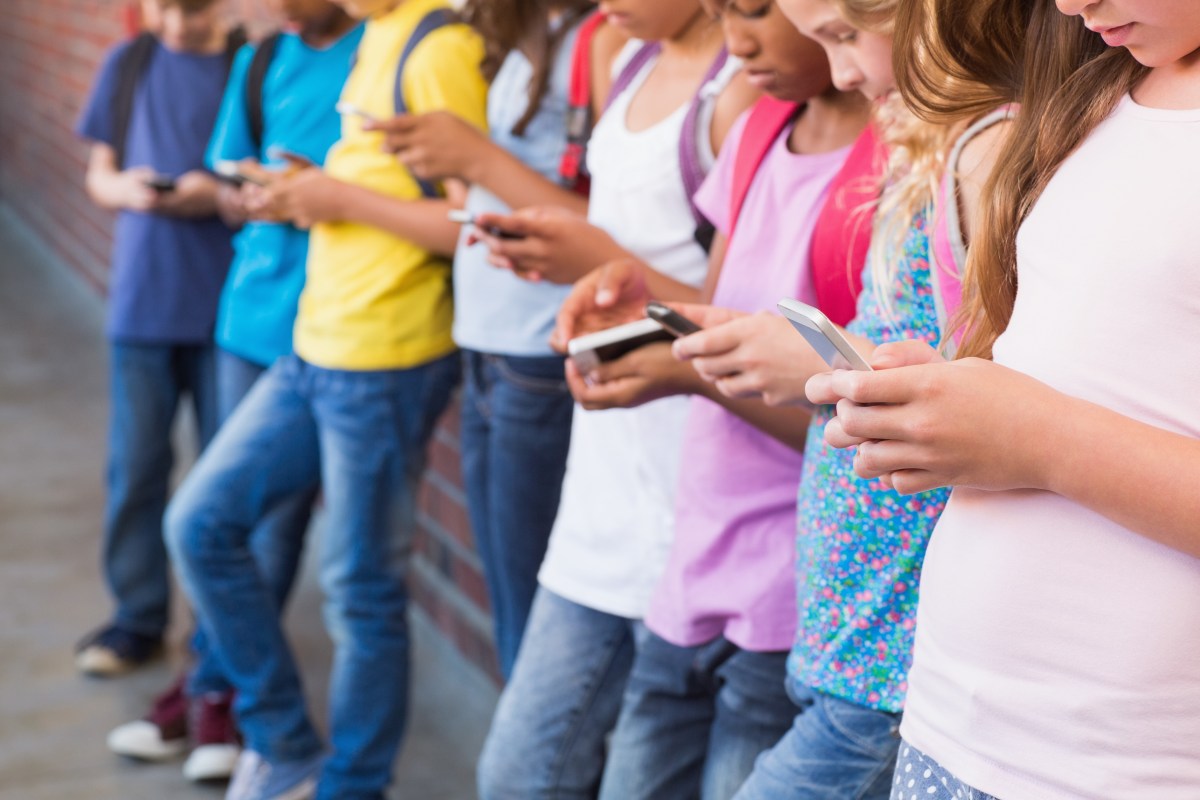
Cellphone restrictions are already in place at some DOE schools, though it is unclear how many. According to the survey, 38% of the UFT members whose schools have bans called them a success, while 40% said it has been a failure.
However, educators who said their bans were failures blamed it on a lack of planning and organization.
Schools that have successfully prohibited the devices did so in various ways. Children in elementary schools with cellphone bans must keep turned-off phones in backpacks.
The survey showed that collecting phones as students walked into the school building worked best in middle and high schools. Cell phone lockers drew the most support.
If the city or state does, in fact, start banning cellphones in schools, Mulgrew said the policy would need to incorporate anything that was found to be successful in schools that created their own policies.
Schools Chancellor David Banks has been vocal about the threats he feels cellphones pose for students.
Jenna Lyle, a spokesperson for Banks, said the DOE is looking forward to working with the UFT on “next steps” regarding the possible ban.
“As the chancellor has said before, cell phones pose a serious threat to the mental well-being and safety of our students,” Lyle said. “We are grateful that our partners at the UFT recognize these potential dangers, and we look forward to collaborating with the UFT as we continue to discuss and evaluate our next steps forward.”
Similar to the UFT snapshot, a nationwide Study.com survey found that teachers report positive outcomes when schools have strict cellphone policies in place.
“In New York, 42% of teachers in schools with strict cellphone policies report less stress as a result of these policies,” Dana Bryson, senior vice president of social impact at Study.com, said. “Teachers with flexible cell phone policies in their schools are losing more classroom time from managing cellphone use, according to the Study.com survey. In fact, these teachers are 21% more likely to spend more than an hour each week managing student cellphone use. That’s a critical time that teachers can spend with their students.”
What do parents say?
Some parents are concerned about safety and the dangers of banning phones during school hours, while others say the devices disrupt learning.
Dawn DiGiovanni, a mother from Staten Island, said a cellphone ban in public schools would be a “disaster” for kids and families.
“Let me get this straight: you want to ban cellphones in public schools and leave my son along with thousands of other children with no communication to the outside world, especially if there is a school shooting or a school evacuation due to a bomb scare or a stabbing,” she said. “Making this choice would be like a ‘death sentence‘ for my son and all the other kids.”
Idelis Quinones, who has two teens in NYC, told amNewYork Metro last month, that she would not support a school cellphone ban.
“The world is crazy, I need to contact my children in case of emergency,” Quinones said. “They might need to contact me for something important. I think if they do it, my kids will be homeschooled.”
Therese Kara Lydon, a mom from Staten Island, told amNewYork Metro last month that she would welcome stricter cellphone policies in school.
“I think they are a major distraction,” she said.



